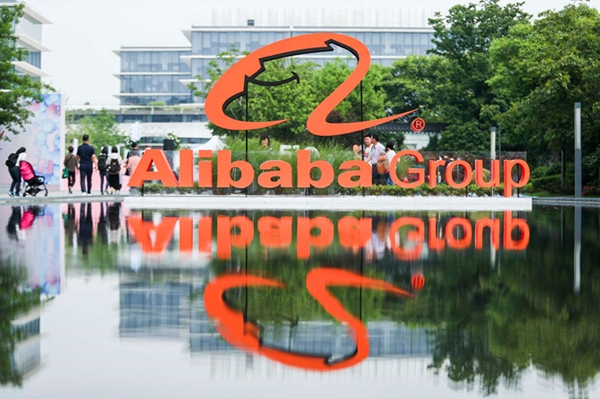Alibaba jumps on AI chatbot bandwagon

The headquarters of e-commerce giant Alibaba Group in Hangzhou, capital of East China's Zhejiang province. [Photo by Niu Jing/For China Daily]
Chinese tech heavyweight Alibaba Group Holding Ltd on Tuesday unveiled its artificial intelligence-powered large language model — Tongyi Qianwen — which it plans to integrate into all of its applicable businesses, joining the chatbot race to offer a potential rival to ChatGPT.
Alibaba Cloud, the cloud computing unit of Alibaba, will offer more enterprises access to Tongyi Qianwen so that they can build their own customized large language models.
"We are at a technological watershed moment driven by generative AI and cloud computing, and businesses across all sectors have started to embrace intelligent transformation to stay ahead of the game," said Zhang Yong, chairman and CEO of Alibaba Group and CEO of Alibaba Cloud Intelligence.
Zhang made the remarks at the 2023 Alibaba Cloud Summit, which was held on Tuesday in Beijing. The chairman added that Al large models will be applied in a wide range of sectors, giving a big boost to productivity and profoundly changing people's lifestyles.
Alibaba began researching large language models in 2019.It said the ChatGPT-style product will initially be deployed on DingTalk, the company's workplace messaging app, to summarize meeting notes, create poetry, write emails and draft business proposals. It will also be added to Tmall Genie, Alibaba's voice assistant.
Interest in generative AI has surged since the release of ChatGPT by US-based startup OpenAI in November. A number of leading Chinese tech firms including Baidu Inc, Tencent Holdings Ltd and NetEase have jumped on the AI chatbot bandwagon.
Alibaba's unveiling came one day after Chinese AI pioneer SenseTime launched its latest set of large AI models — SenseNova — which cover key capabilities including computer vision, natural language processing and AI-generated content. Baidu rolled out its large language model and ChatGPT-like product dubbed Ernie Bot last month.
On Tuesday, China's cyberspace regulator unveiled draft measures for managing generative AI services. Providers will be responsible for the legitimacy of data used to train generative AI products, and measures should be taken to prevent discrimination when designing algorithms and training data, the Cyberspace Administration of China said.
The regulator said China supports the innovation and application of AI algorithms and other basic technologies, and encourages the use of safe and reliable software, tools and data resources. But the content generated by generative AI should be in line with core socialist values.
Pan Helin, co-director of the Digital Economy and Financial Innovation Research Center at Zhejiang University's International Business School, said the process of training large AI models necessitates higher requirements for computing capacity, and Alibaba has accumulated some advantages in AI infrastructure, with cloud computing business being a key segment driving its revenue growth.
Lu Yanxia, research director at market consultancy IDC China, is bullish on Chinese tech companies' prospects in ChatGPT-like products, as they have gained an upper hand in dealing with Chinese text information. But the use of generative AI technology also raises concerns about ethics, copyright protections and leaks infringing on personal privacy.
